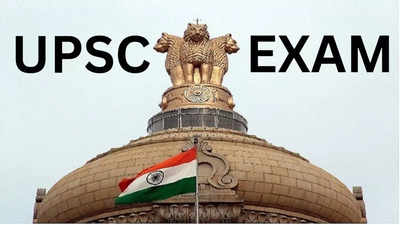
யுபிஎஸ்சி சிவில் சர்வீஸ் தேர்வு 2024
UPSC 2024 Expert Guide
is an initiative by Times of India where we share expert advice for IAS aspirants.Today our expert Shubham Aggarwal, Director and Chief Mentor at Vidyapeeth IAS Academy, is sharing his insights on UPSC Detailed Application Form (DAF) submission, which follow the MAINS exam and is a crucial phase of an aspirant’s UPSC journey. Read on for his expert suggestions on the best way to fill the DAF.
DAF submission is the first step towards the last phase of your UPSC journey: The interviews/Personality Test. It is a gateway to the first formal 1-to-1 interaction between an aspirant and UPSC. The candidates will be given their respective slots over a period of two to three months after the DAF Submissions are over. A DAF tells UPSC everything about you on paper, and the interviewers build up their perspective about you, through this information furnished in the DAF. The last date to submit DAF for UPSC 2024 interviews is 19th December.
The information to be provided in the DAF may be categorised into three types:
1. The first portion consists of the details about you which cannot be hidden - your personal details, place of birth, mother tongue, permanent address, details about your mother and father, their incomes and places of residence, your academic details, marks in school and college, your formal job, your previous UPSC attempts, etc.
These details are hard facts which cannot be changed or manipulated. Changing them would amount to unethical behaviour and even fraud on the system. We can not guide candidates about this part, and just recommend that they must fill it very carefully, to the best of their knowledge, so as to avoid any mismatch with the original documents.
2. The second part of the DAF checks your creative instincts at the University/State/ Level in respect of - Prizes, Medals, Scholarships, Sports/N.C.C., Position(s) of distinction Leadership held in School/College, Other extracurricular activities and interests such as hobbies etc. Here, you have an opportunity to showcase that you have a life beyond books and core academics and you have been doing much more in life, besides UPSC preparation. But remember, it is okay not to have these. Sometimes, the circumstances may now allow one the luxury to enjoy these activities and a candidate may leave these fields blank, instead of lying about them. The commission respects the fact that India is a nation that has people with survival issues involving bread and butter, and not all get the chance to perform extra-curricular activities. Also, one should not clutter their DAF with every activity performed in the past, which you think is a distinction.
3. The third part of the DAF is about your future aspirations: Your cadre, zones, or service preferences. You may be asked a question if your IAS and IPS preferences differ too much. This part has to be filled up assuming that a major part of your service will be spent in that particular area and field. However, not everything would go as per your wishes unless you end up in the top 50 and get your desired state and service. Still, one may prioritise the list after an informed consultation with family, future aspirations and mentors. For instance, a person aspiring for Police services in Punjab and Haryana may not wish to end up in Tamil Nadu’s Indian Postal Services.
Given all the efforts put in, a lot depends upon your merit and rank and the availability of the desired vacant post. One should be prepared to serve like a soldier in any part of the country, at the call of duty.
(The expert can be reached at 0306shubham@gmail.com. His specialisations include General Studies and Political Science and Relations(PSIR) Optional)

 1 month ago
1 month ago


















